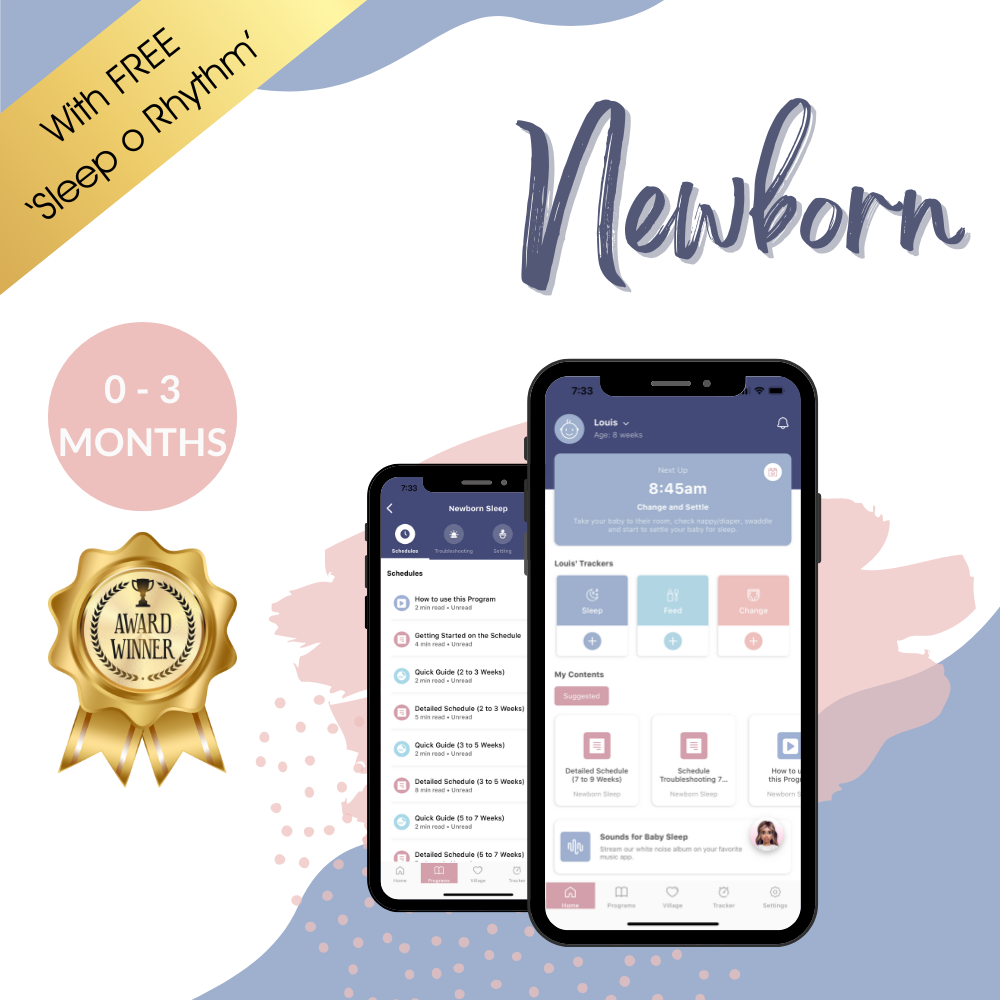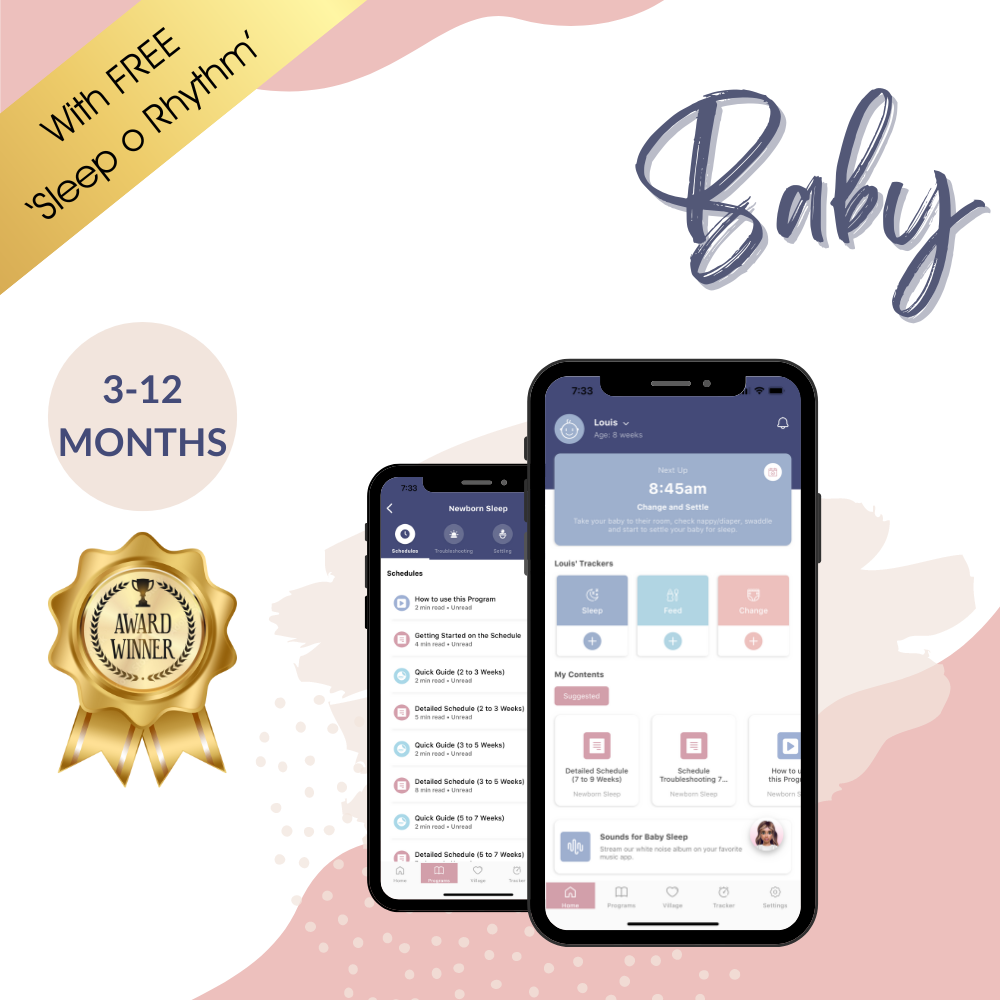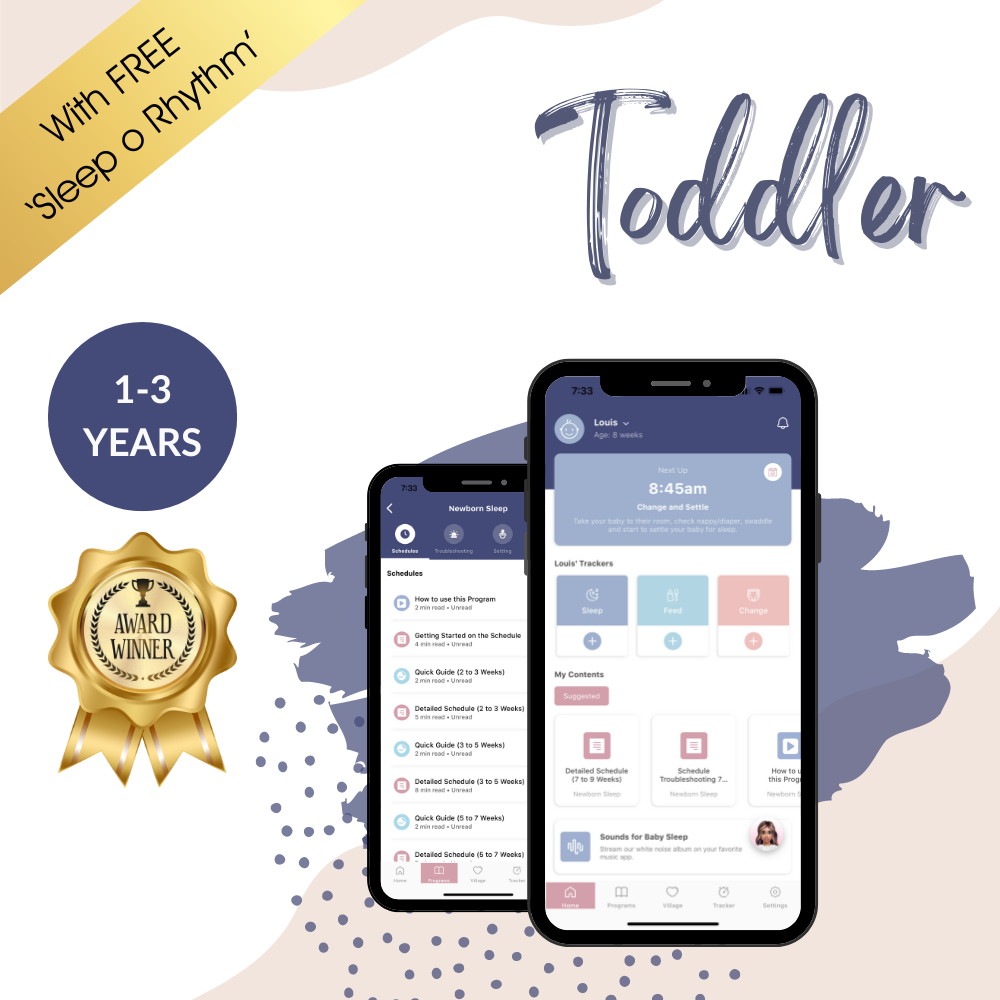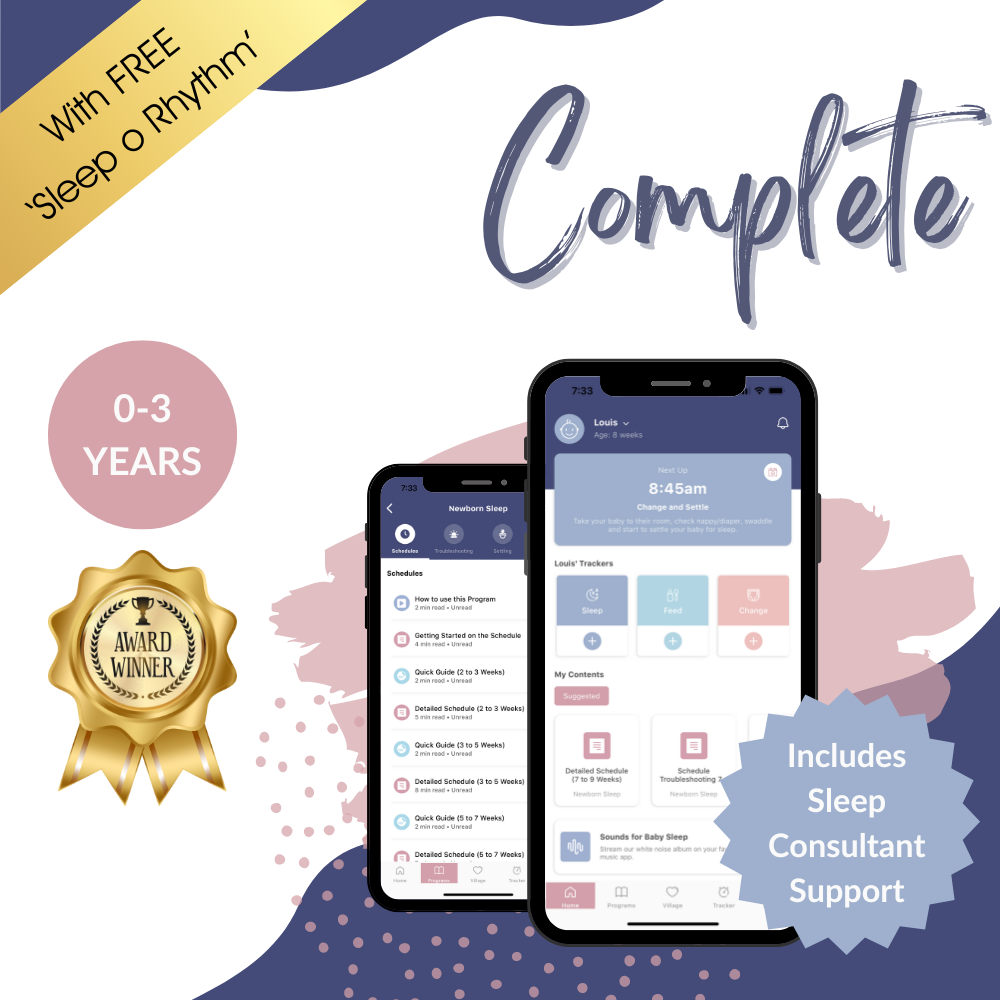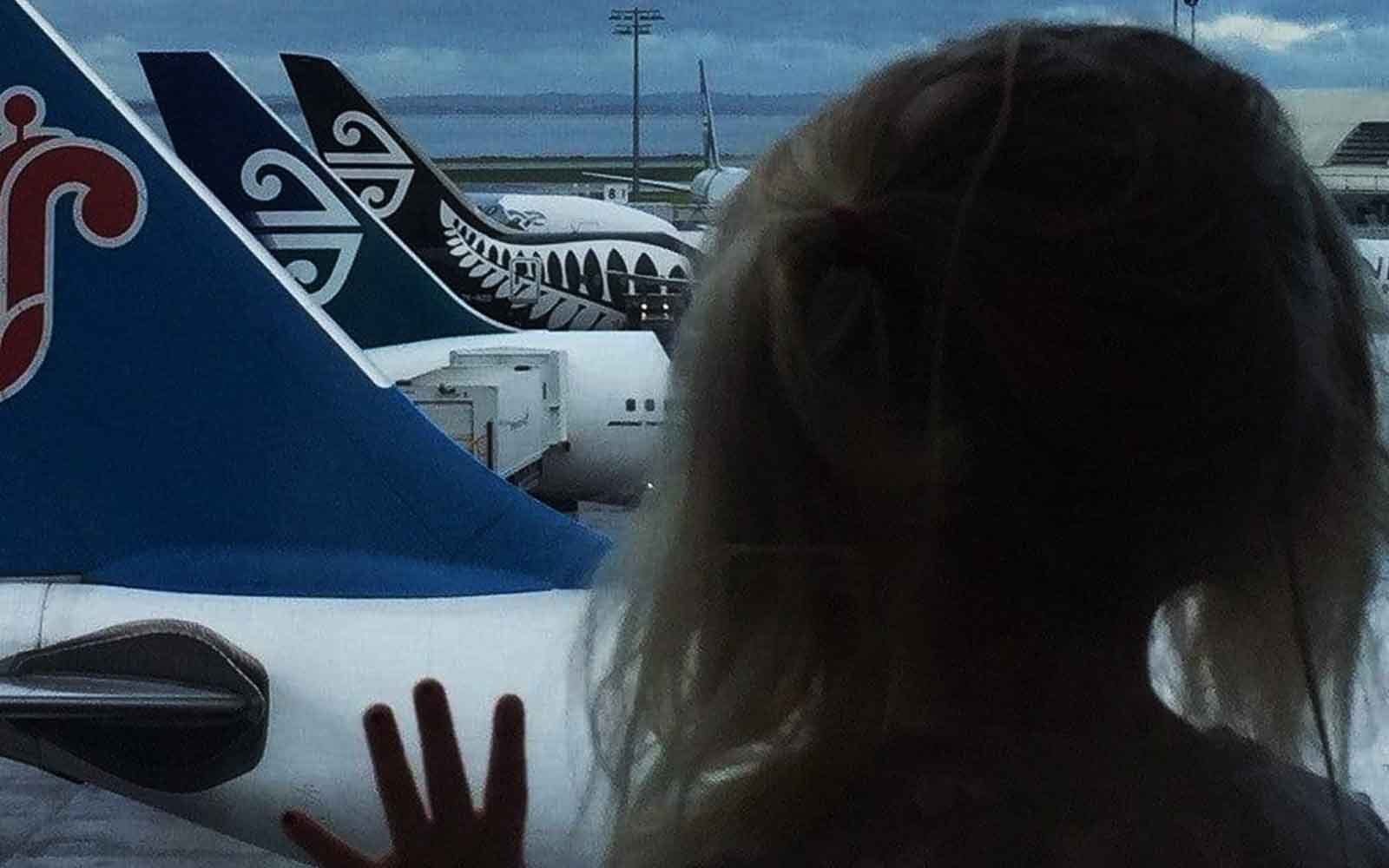
Flying with kids: 24 tips from us (and an air hostess)
Anyone who has ever traveled knows that everything from the minute you leave home - checking in, going through customs, getting on board, arriving, collecting bags and getting to your destination - can be very stressful and tiring. Try adding a few children in the mix and it can be enough to make you question why you decided to go on holiday in the first place!
Children can distract and frustrate you by asking ten billion questions, losing toys, losing shoes, losing themselves, getting hungry, getting tired… and so on. But with a little preparation, it is possible to avoid most of these situations and make your trip more enjoyable.
Prior to the Covid-19 pandemic, went on a family holiday to Fiji. Here are a few tips from myself and a flight attendant friend that will help to make your holiday a success!
Get your little one’s sleep back on track.
Get guidance, advice & exclusive support through the sleep regressions, nap transitions and big sleep changes to come.
Get our Sleep Programs
Tips for the airport and onboard
1. Pack light
For shorter trips, my husband and I share a suitcase and my two girls share a bag as well. We also have only one carry-on bag per person. You will have enough to think about on your journey - whether the kids have eaten, slept, still got teddy, had their travel sickness medication, whether you still have your passports and have filled in the endless forms to enter the country…
When you eventually arrive at your destination, the last thing you want to do is accidentally leave a bag at the airport! So the less bags to worry about, the better.
2. Have bright bags
We have one pink checked bag and one plaid grey and white bag. You can see them as soon as they hit the baggage carousel, which makes it so much easier to scoop up your bag and get out of there quickly!
3. Check each individual bag isn’t overweight
Most airlines have automated check in counters now, which won’t let you average your baggage allowance over all your bags. This means you either have to pay extra baggage fees or take things out and move them to another bag. It is much easier to do this at home without your kids trying to “help”!
4. Strap your kids in/on
Airports are VERY busy places and a lot of it involves going through customs, through x-rays and standing in lines and waiting. If possible have a travel pram for any child under 4 and a front or back pack/carrier for any child under 2. If you can, try to get a travel pram that can go on-board with you (I love my Mountain Buggy Nano). My flight attendant friend said the gate-to-gate service with umbrella strollers only logistically works 50% of the time.
5. Give your child the chance to sleep at their usual sleep times
Whether it’s in a pram or front pack or in the plane bassinet, let them sleep. They probably won’t sleep as long as they usually do at home but if they are in a good sleeping pattern, they will want to sleep at the same times as usual, so it's important that you at least give them the chance.
When we went to Fiji, my 2.5 year old hadn't napped in a pram for almost a year and a half. She was so used to sleeping at 12.30pm though that when I popped her into the pram at Fiji airport and asked her to have a sleep – she went straight to sleep! I didn’t even have to do anything to help her settle. Be prepared to do some rocking or push the pram though, because things are obviously very different to their cot at home and your little one may need a bit of extra help to get to sleep.
6. Do ANYTHING to get your child to sleep on travelling day
This is especially important if, for some reason, you couldn’t let your baby sleep when they usually do. Don’t worry about creating "bad" sleep associations, just do ANYTHING to get them to sleep. Babies under 1 year old really can’t cope with becoming overtired and unfortunately, because they are in such an overstimulating environment, things will only be made worse if they don’t get some sleep.
7. For takeoff and landing, breastfeed or give a bottle
During takeoff and landing the pressure changes are huge, so if you can breastfeed or give your baby a bottle, the swallowing can help with equalizing their ears. If they start screaming don’t worry too much – screaming is sometimes how babies equalize. A little known fact is that there are no microwaves on-board, so come prepared with hot water before you leave or be prepared to wait for your bottle to heat up in a jug of hot water.
8. Double nappy your baby
Before getting on-board double nappy your baby. Plane toilets are very small and the change table is even smaller, so by having the other nappy already there and ready to go it will make the change much easier. Put pull-ups on any child under 5, especially if you’re doing a long haul flight. Turbulence can mean you’re stuck in your seat for over an hour at times and after a meal service you can end up queuing for a toilet for quite a while too. Pull-ups can help to prevent accidents while you wait.
9. Plane toilets have a hook
Did you know there is a hook on the back of the door to store your bag/nappy bag so you don’t have to put it on the floor? This would have been good to know when we went to Fiji!
Say goodbye to sleepless nights.
Join over 800,000 families worldwide who are enjoying excellent sleep with our Sleep Programs, created by experts in the field of pediatric sleep.
Get our Sleep Programs
10. Get someone to go on-board first
If you’re travelling with your partner or someone else, get them to go on board first to set up your bags and kids toys. This allows you to focus on getting the kids on board and it will be a smooth transition where they can get comfy in their seats straight away.
11. Book a bassinet row
If you can, book a row with a bassinet for your baby. Even if you don't end up using the bassinet, it gives you more leg room! Just bear in mind that you won’t have a seat in front of you to put your bags under, so they will all have to be stored overhead. You might also want to consider a blackout cover for the bassinet, to help your little one sleep better.
12. Pack snacks and more snacks
When sitting for long periods kids can get hungry. Don’t rely on the plan to have enough food; even the on-board options sell out 90% of the time. There’s also no guarantee that the plane will offer snacks that your kids will want to eat!
13. Check your child’s dietary meal 48 hours before your flight
If you have ordered a special meal for your child, call the reservations number 48 hours before your flight to guarantee that the order has been placed. Checking on the day is too late.
14. Make use of the on board supplies
On the plane, there is pureed baby food, wipes, nappies and olbas oil (for the little ones to sniff) if needed. These are all part of the plane amenities so you can just ask a flight attendant if you need anything. Flight attendants are also usually happy to hold your baby if you need some time out or a bathroom stop.
15. Celebrate your child's birthday
Flight attendants are more than happy to wish your child a happy birthday over the PA, they can even get the pilot to do it too!
16. Travelling alone with little ones
Did you know you can get special assistance from the ground staff to help you through customs and get your bags? Your friendly flight attendant on-board can arrange this for you during the flight.
17. Make sure you have spare clothes for you and the children
It’s never fun being vomited on, especially if you can’t get out of the clothes that smell of spew. Make sure you have a personal change of clothes and extras for your children too.
18. Fill in all arrival forms on-board
It's almost a guarantee that your children will be tired and grumpy when the plane lands and they won’t want to wait around while you fill in forms. Get it done on-board while they are asleep or otherwise occupied so it’s one less thing to worry about at the airport when you land.
19. Bring your own entertainment
Depending on your flight, there may not be any on-board entertainment or it might not be enough to hold your child’s attention so it’s always a good idea to bring your own. Keep in mind that most electronic devices including cell phones and tablets need to be turned off during takeoff and landing so try to have some non-electronic options handy - you don’t want your child having a tantrum because they can’t play angry birds!
20. Order duty-free online
This way you won’t be shopping with your favourite rascals in tow and you won’t have to queue to pick it up either!
Let's get your little one's sleep sorted ASAP!Our award-winning Sleep Programs will solve your baby's sleep challenges in no time.
Get our Sleep Programs
Tips for your destination
21. Stick to your children's normal routine as best you can
If there is no time-zone difference where you are travelling, or it’s only 1-2hrs difference, your best bet will be to stick with your normal routine. So if you normally run a 7am-7pm day at home, that might become a 5am-5pm or 9am-9pm day at the local time. I know that might not sound great at first, but it actually gives you the opportunity to do things that you wouldn’t normally do at home like go for a sunrise walk on the beach or have a late dinner out as a family.
If there is a larger time-zone difference, your children will probably be a bit out of sorts for a few days but the sooner you can get into their normal routine, the quicker they will adjust. So if you normally run a 7am-7pm day at home, jump into that familiar routine again at the local time and give your children some time to adjust.
22. Pack any medication possible
On our trip to Fiji, our youngest was sick the ENTIRE time. The week-long trip started with diarrhea, then the poor bubba got a fever, bilateral ear infection and a full body rash (which turned out to be hand foot and mouth disease). We were able to get a doctor to come to our room when she had a fever – he found her ears were infected but he only had amoxicillin antibiotics on hand. My daughter is resistant to amoxicillin, but luckily I had brought her usual antibiotics from home.
It is a good idea to have plenty of paracetamol and ibuprofen on hand as well. Getting sick on holiday is sometimes inevitable but being prepared can make it as bearable as possible for everyone.
23. Take disinfectant wipes
Disinfect EVERYTHING, especially for crawling babies. Some of the high chairs we used while in Fiji were stored outside, so had mould on them. Make sure to clean surfaces well before you let your baby eat off them.
24. Drink bottled water
If you are travelling where the water quality is questionable, play it safe and drink bottled water!
25. Invest in travel insurance
Doctors visits can be extremely costly and you definitely don’t want that cost to dissuade you from seeking medical advice when you or your children are unwell. It’s worth checking too whether your travel insurance will cover any additional costs if you need to change your plans due to Covid-19.
To sum up....
A holiday with kids is obviously not going to be as relaxing as going away on your own or with your partner or friends but it can still be a lot of fun and you will be making great memories with your family.
If your little one’s routine looks a little different to usual, or if they’ve developed some new sleep habits while you’re away, try not to stress too much! More often than not, things will naturally correct themselves once you are home. If not, our sleep consultants are available in the Little Ones Village, where they can help you to get back on track.
I hope these tips help if you’re thinking about or planning a holiday any time soon. It can be really awesome having time away with your little ones – even more so if you’re prepared for any situation!

Receive product and services updates, promotional offers and other marketing communications based.


